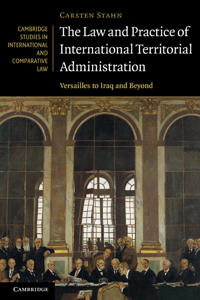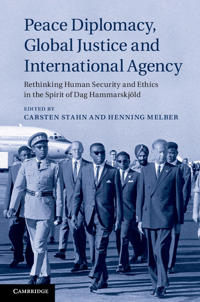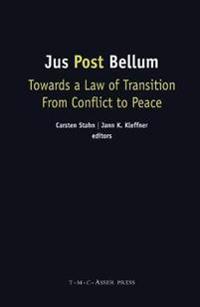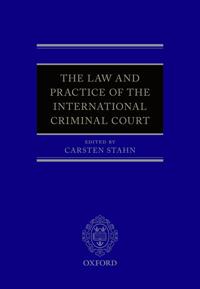The Law and Practice of International Territorial Administration (Pocket)
avCarsten Stahn
ISBN: 9780521173957 - UTGIVEN: 2010-11International actors have played an active role in the administration of territories over the past two centuries. This book analyses the genesis and law and practice of international territorial administration, covering all experiments from the Treaty of Versailles to contemporary engagements such a[...]
Peace Diplomacy, Global Justice and International Agency (Inbunden)
avCarsten (EDT) Stahn, Henning (EDT) Melber, Carsten (EDT) Stahn
ISBN: 9781107037205 - UTGIVEN: 2014-06As UN Secretary-General, Dag Hammarskjold shaped many of the fundamental principles and practices of international organisations, such as preventive diplomacy, the ethics of international civil service, impartiality and neutrality. He was also at the heart of the constitutional foundations and princ[...]
Jus Post Bellum (Inbunden)
avCarsten (EDT) Stahn, Jann K. (EDT) Kleffner, Carsten (EDT) Stahn
ISBN: 9789067042727 - UTGIVEN: 2008-07Warfare is usually theorised in the categories of jus ad bellum (justification for recourse to force) and jus in bello (rules applicable in armed conflict). The challenge of establishing fair and sustainable peace after conflict (jus post bellum) has received less attention in existing law and pract[...]
The Law and Practice of the International Criminal Court (Inbunden)
avCarsten (EDT) Stahn
ISBN: 9780198705161 - UTGIVEN: 2015-07Some parts of this publication are open access under the terms of a CC BY-NC-ND 4.0 International licence. Chapters 2, 4, 10, 47 and 49 are offered as a free PDF download from OUP and selected open access locations. The International Criminal Court is a controversial and important body within intern[...]
Jus Post Bellum (Inbunden)
avCarsten (EDT) Stahn, Jennifer S. (EDT) Easterday, Jens (EDT) Iverson
ISBN: 9780199685899 - UTGIVEN: 2014-04The successful transition from armed conflict to peace is one of the greatest challenges of contemporary warfare. The laws and principles governing transitions from conflict to peace (jus post bellum) have only recently gained attention in legal scholarship. There are three key questions concerning [...]







